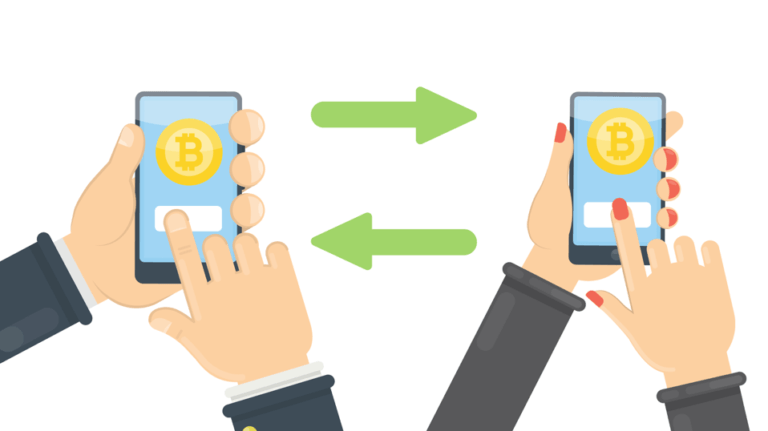The real value of Bitcoin (as well as every cryptocurrency which rightfully deserves its name) is given by its resistance to the will of any central power. The real meaning of decentralization isn’t really “the distribution of coins is equal to all participants”, but rather “no government, miner, or other entity can censor my transactions by cancelling or reversing it.”
This aspect is perhaps the most important in evaluating every cryptocurrency available on the market. If you just want cheap transaction fees and don’t care whether or not your operations are immutable, then you might as well switch to PayPal.
But how can we make sure that, in the absence of an internet connection, people can still send and receive Bitcoin? Let’s think of a scenario similar to the one we’ve seen in Turkey back in 2016: during a series of protests taking place in 11 Kurdish cities, the central government didn’t want the voices of the participants to be heard worldwide, so they simply exercised their authority over the network for as long as they thought was necessary to cover up the events.
Maybe the scenario of Kurdish populations wanting to transfer coins and make sure they can leave the country safely and by retaining their life savings. Or maybe, one of the members of this community needed to send money abroad, but couldn’t even access online banking services. How can this issue get solved?
We are talking about real people getting oppressed by their governments, while their autonomy, right to free speech, and right to get informed get removed abusively. This kind of context requires radical solutions to limit the power of the sovereign authority and allow average citizens to retain their economic rights. Fortunately, there are programmers who thought about alternatives to the requirement of being connected to the internet in order to make cryptocurrency exchanges, and some of them will get presented throughout the article.
Send Bitcoin Via SMS, Relaying Smart Apps, or Even Radio Waves!
The SMS option may be the most obvious one, and it’s certainly a solution to help people in developing countries access banking services that otherwise don’t reach them. One of the taglines of Bitcoin has been “banking the unbanked”, and some crypto advocates have set their minds on finding working solutions to help integrate poor regions of the world into the financial system.
The Samourai wallet seems to be involved in quite a few of these projects, and the first one which was added as a feature was the SMS payment. Naturally, the considerations behind this addition regard government restrictions and other arbitrary interferences with the internet. If you have your connection shut down, you can still use the Pony Direct service to make your Bitcoin transaction via SMS.
However, telephone communications can also get censored and restricted just as easily as the internet, and SMS transactions can only be seen as a short-term emergency solution. If you’re in danger and want to transfer your funds, then you’re going to need something better and more innovative.
This is where the Brazilian siblings Daniela and Jorge Perdomo step in and change the rules of the game. Through their technology, which is also going to get integrated in the Samourai wallet, you can even make transactions from areas that are struck by natural disasters.
In order to benefit from these features, a dedicated piece of hardware called the goTenna is required to relay the message across the mesh network. You also need to be within the range of 1 to 61 miles (depending on the terrain and environment) so that the device catches your signal and sends it forward until it reaches a computer that’s connected to the internet. This is certainly an inconvenience, but if you want to secure your coins, it’s certainly in your best interest to acquire the goTenna fulfil the conditions (but also make sure that it can communicate with another device which can access the internet).
It’s all too complicated, but Nick Szabo has an even more interesting proposal: in a research paper he published in 2017 in collaboration with Elaine Ou, the legendary cryptographer suggested that would Bitcoin transactions be made through short-signal radio waves.
This would completely obliterate any government intervention and make sure that anyone can participate in the network, as “Chinese firewalls cannot stop radio”. It’s a decades-old technology which was used during the Cold War to spread propaganda across borders, and the thought that this can be used for Bitcoin is pretty fascinating. Also, if you take a look at the end of Mr. Szabo’s presentation, you will find that he’s looking for volunteers to put the project into practice – which pretty much means that we should be expecting a surprise.
In order to retain its value and reach its original goal (not just “Satoshi’s vision” to legitimize on-chain scaling), Bitcoin must remain censorship-resistant. If any central authority can interfere and find breaking points (shut down mining rigs and nodes, or arrest developers), then we must constantly look for alternatives to maintain the power of our beloved digital gold. Otherwise, how can we build a better and fairer world for finances if the blockchain projects get more centralized in time and newcomers regard them as bonds, stocks, or securities?









